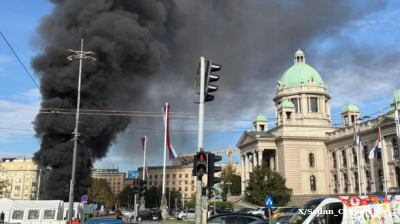Iran’s Leader Ali Khamenei said that it is no problem to interact with the "enemy" on some occasions, in remarks that are interpreted as a green light for re-engagement with the US over the ongoing nuclear issue, his official website reported on August 27.
Addressing a meeting with the new Pezeshkian-led Cabinet on August 27, he said the government was permitted to engage with the Western world but advised against it in discrete reference to failed efforts previously, namely the so-called Joint Comprehensive Plan of Action (JCPOA). Iran was under sweeping international sanctions over its nuclear programme until a deal was signed in 2015 with the six world powers that allowed investment into the country in return for curbs on the country’s nuclear activity. Following new sanctions by the Trump administration, negotiations started later to bring the agreement back to life, but they finally reached an impasse, although the exchange of messages continued through intermediaries, including Oman and Qatar.
President Masoud Pezeshkian was elected with promises of re-engagement with the West to have the sanctions removed. His foreign minister Abbas Araqchi said later that the JCPOA, as the deal is formally called, cannot be revived, and a new agreement should be formulated about direct talks with Washington.
The leader said the enemy, a term he often uses to refer to the United States, should not be trusted. However, he added that it does not contradict interaction with the enemy under certain circumstances.
The presence of former foreign minister Mohammad Javad Zarif, who is known as the architect of the nuclear deal, also signalled a potential intention in the Iranian leadership to make compromises on the nuclear issue.
At the same time, Khamenei urged the government to prioritise the development of nuclear energy, saying it is essential for the country's future.
"The country cannot deprive itself of a scientific, technical, and advanced global subject and then try to catch up years after falling behind," he said.
The international community, particularly the West, is sceptical of Iran’s nuclear activity, although it maintains that the program is exclusively for civilian purposes.
Khamenei stressed the importance of using experts in decision-making, while cautioning against the imposition of incorrect mental residues in the guise of expert opinion.
On the issue of cyberspace, the Supreme Leader called for lawful governance, stating that "cyberspace is no longer virtual but a developing reality in people's lives" he said in a potential reference to Musk and Durov's ownership of popular social media apps X.com and Telegram.
Khamenei identified production and strengthening supply as the key to solving the country's economic problems, saying that by strengthening production, issues of inflation, employment, and national currency value would be resolved.
The Leader also touched upon the dangers of premature population ageing, urging the health minister to pursue population growth policies seriously.
In response, President Pezeshkian described his cabinet as a consultative one with the participation of all political factions and expert committees, formed with the slogan of consensus and empathy to act within the framework of the general policies of the system, the vision document, and the seventh development plan.
Later on August 28, local media in both Persian and
News
_1761147529.jpeg)
China accuses Washington of “bullying” over visa ban threats in Central America
China has sharply criticised the United States for its decision to impose visa restrictions on Central American officials and citizens accused of ties to the Chinese Communist Party, describing the move as evidence of American “arrogance and bias."

Serbian president calls fire, shooting outside parliament a terrorist attack
The attacker, a retired employee of the former State Security Service, opened fire on a tent settlement of pro-government supporters.

Bolivia's new leader must rebuild a shattered economy
Bolivia enters a new political and economic phase as centrist Rodrigo Paz prepares to take office on November 8, inheriting one of the country’s most acute crises since the hyperinflation of the 1980s.

Hungarian foreign minister says "many actors" worked to prevent Budapest summit
The White House has suspended plans for a meeting between US President Donald Trump and Russian President Vladimir Putin in Budapest.

.jpg)


